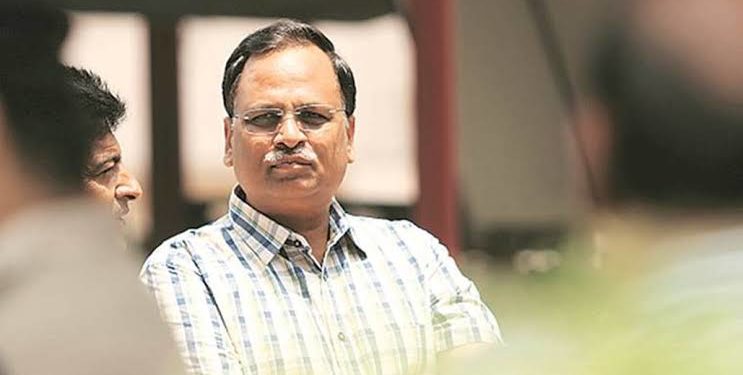-
- Delhi Health Minister Jain emphasized the threat of community transmission
- 50% of hospital beds empty, 15000 bed capacity in Delhi
- Increased RT-CPR testing in the last week, better results awaited
THD NewsDesk, New Delhi: In a press briefing on Saturday, Delhi Health Minister Satyendar Jain brought the center’s attention towards the probable threat of community transmission of coronavirus. In the backdrop of a sudden spike in Covid cases reported countrywide, the virus’s community spread is a real possibility that demands the government’s attention.
Community transmission occurs when a person contracts a virus either after visiting an affected place or coming in contact with an infected person.
Demanding a confirmation by the Indian Council of Medical Research (ICMR) and the Centre, he said,
“When people are getting infected in such large numbers in Delhi and in all other parts of the country, then it should have been accepted that there has been community spread. ICMR and the Central government can only tell (if there has been community spread).”
Recently on Sunday, Samwad, Union Health Minister’s weekly interaction program, Dr. Harsh Vardhan, attested that community transmission is indeed happening. However, he clarified that community transmission is only occurring in individual states and is further restricted to a few states’ pockets.
Measures adopted by the Delhi government to control the spread of the pandemic
In an attempt to restrict the coronavirus’s spread in Delhi, the AAP government has swung into action. Earlier, the testing procedure was made less cumbersome by scrapping the doctor’s prescription requirement to avail of an RT-CPR test.
The capital has touched a new record of 4,377 new Covid cases daily for the last week. Fortunately, the Delhi government has positively intervened to accelerate Delhi’s testing capacity over the previous 10-12 days. Since the last few days, the virus’s positivity rate is already on a downhill decline, and by the next week, one can hope for improved results.
“In the current system, symptomatic cases are segregated and tested (through rapid antigen test). In most cases, such results are found positive. If the result is negative, then RT-PCR test is also done,” the minister said, elaborating on the testing method adopted by Delhi’s testing facilities.
Currently, Delhi boasts a 15000-bed capacity post the recent installation of 500 ICU beds in private hospitals dedicated to Covid patients. Therefore, Delhi’s private and government hospitals can now promise 50% of vacant hospital beds for patients. In addition to that, the Delhi Disaster Management Authority is presently strategizing the development of containment zones that would be scrutinized by experts.
Source: Indian Express























